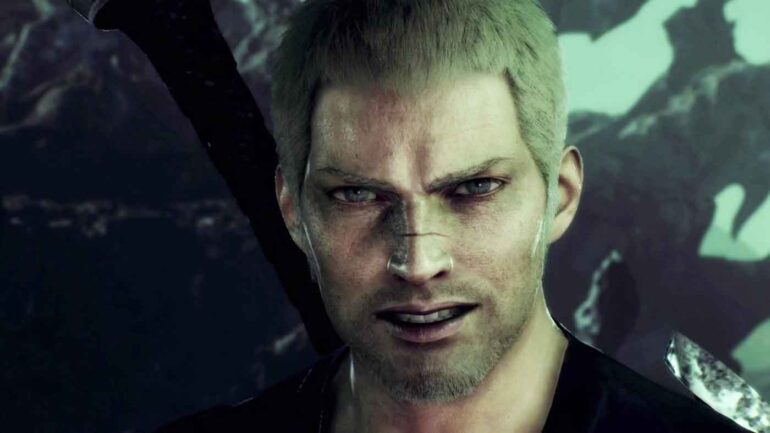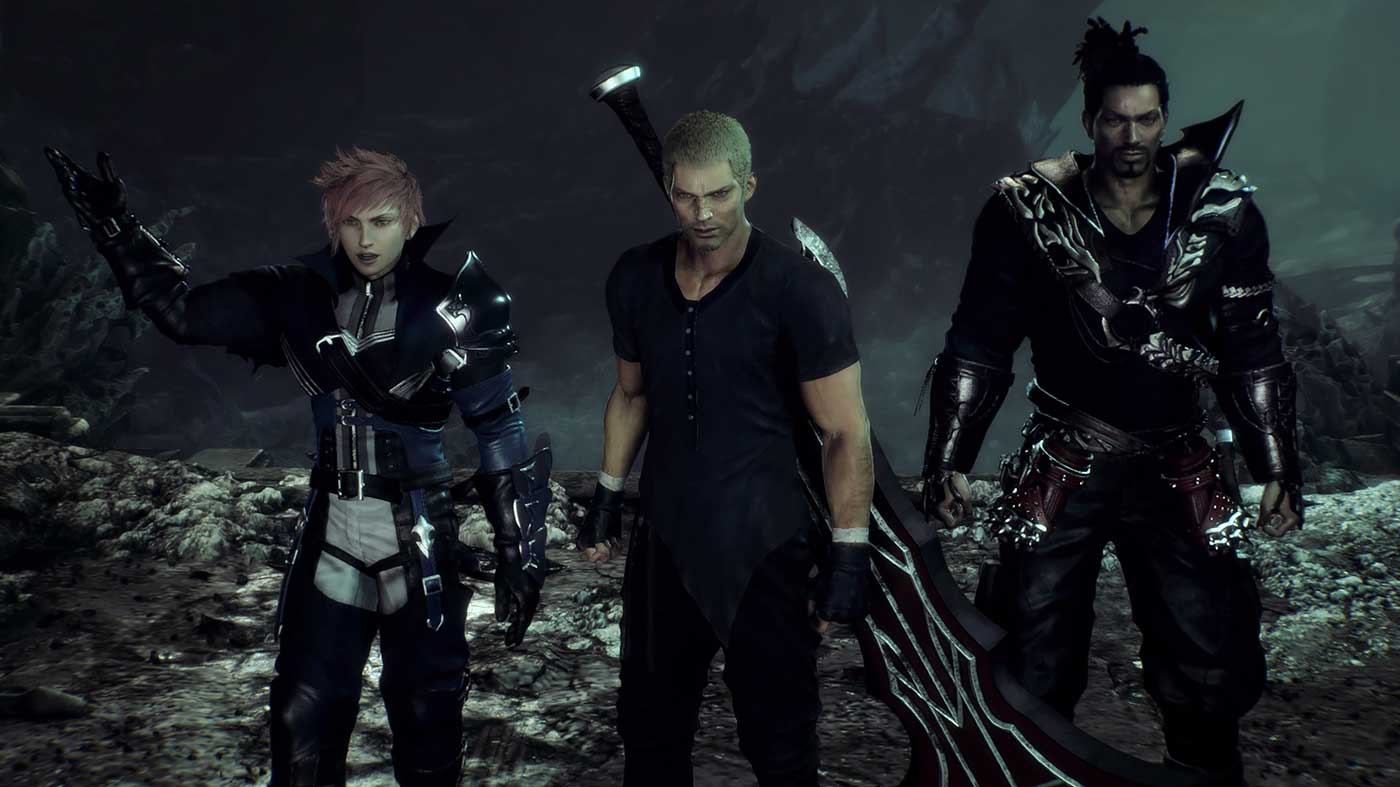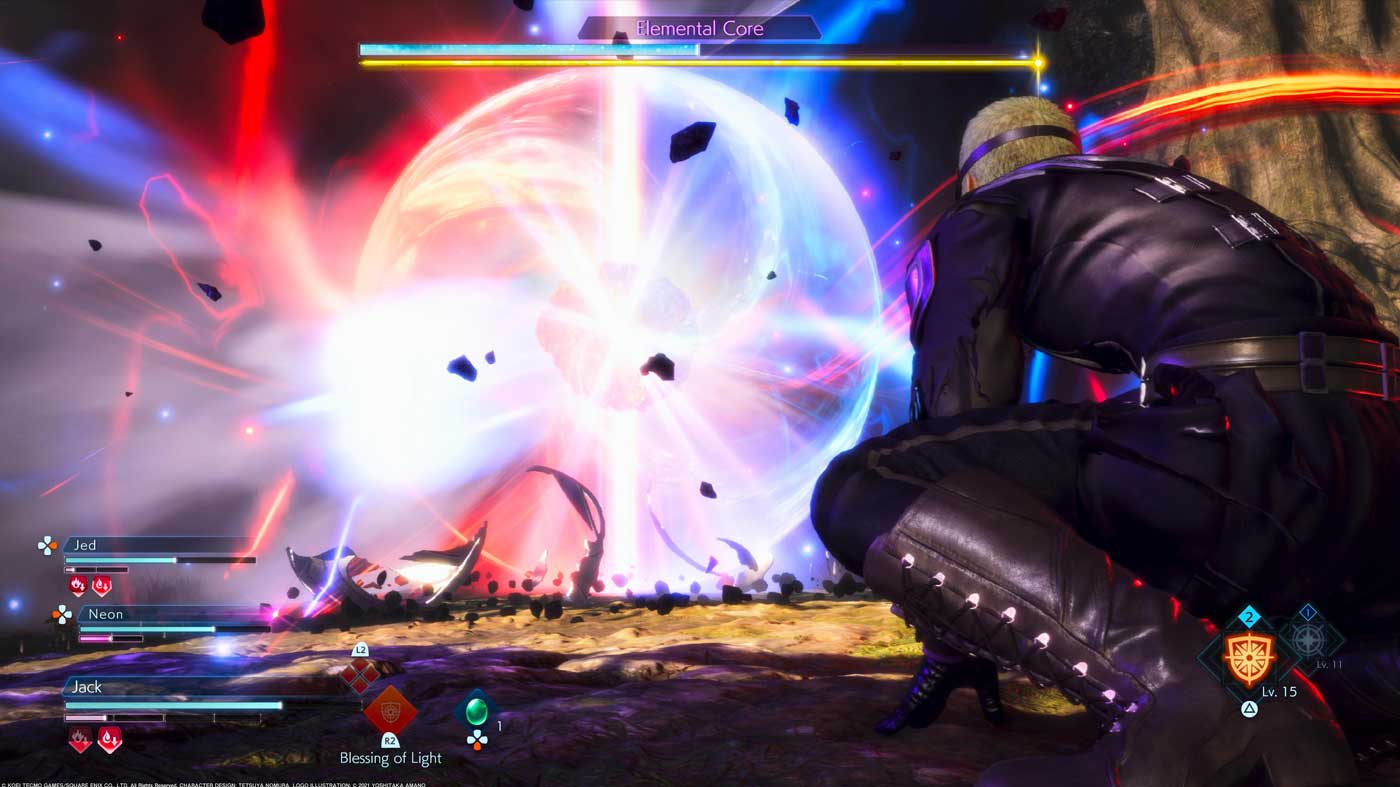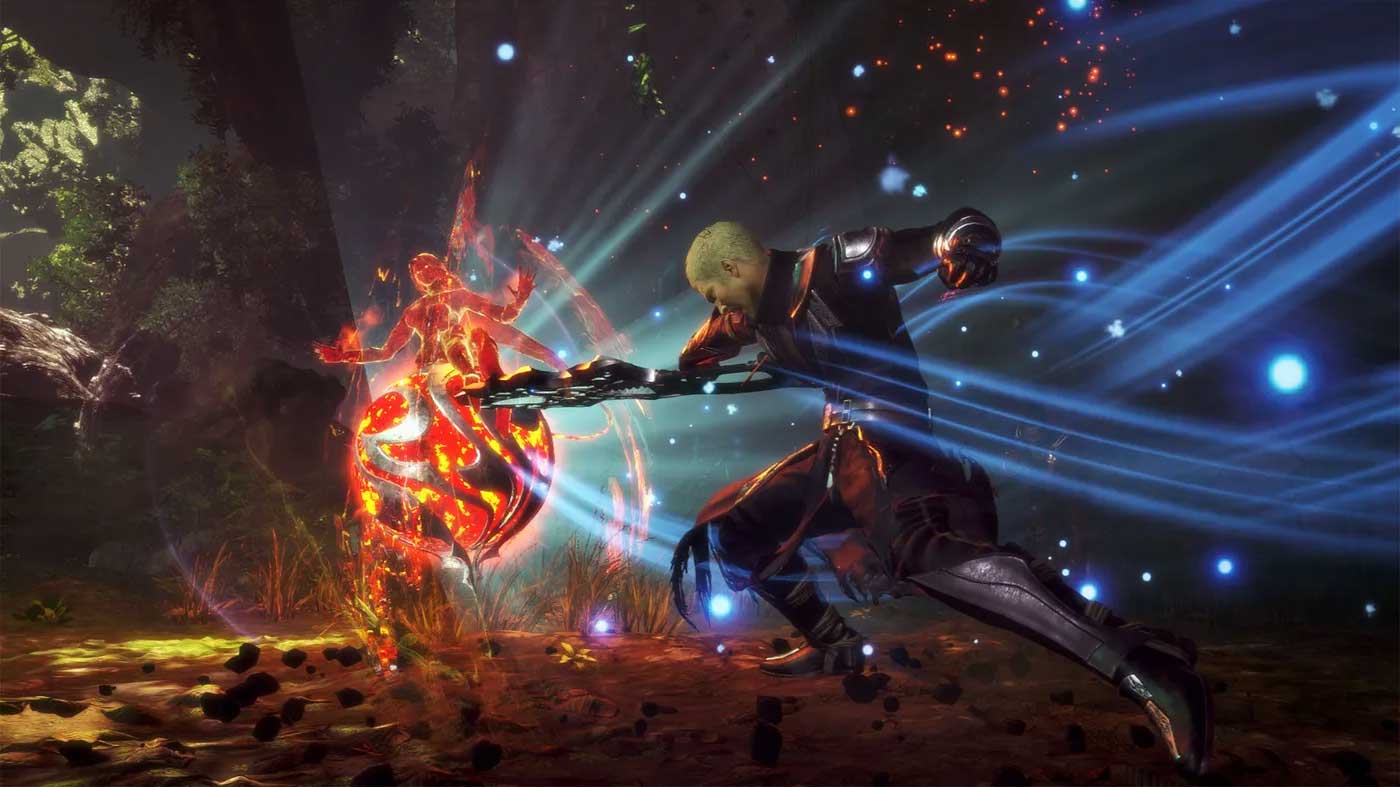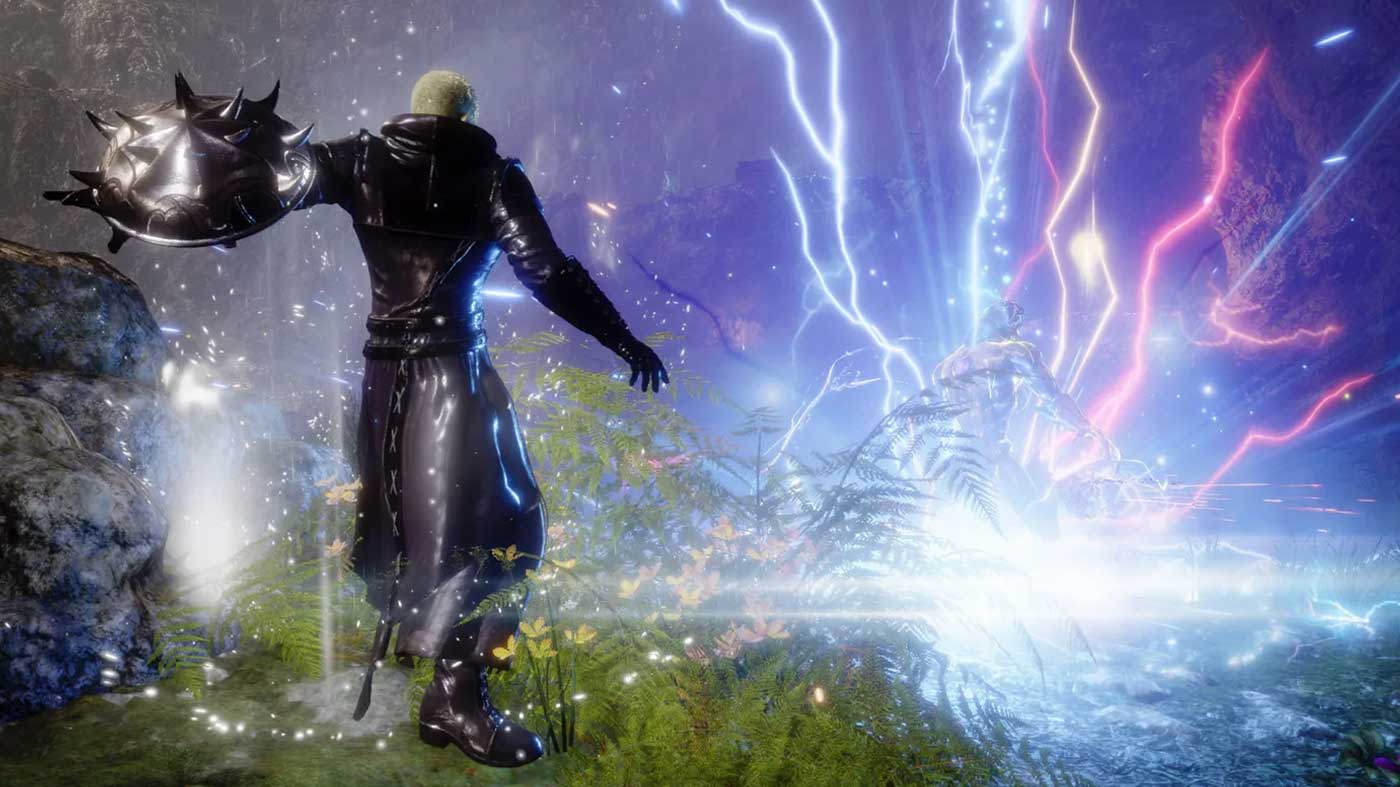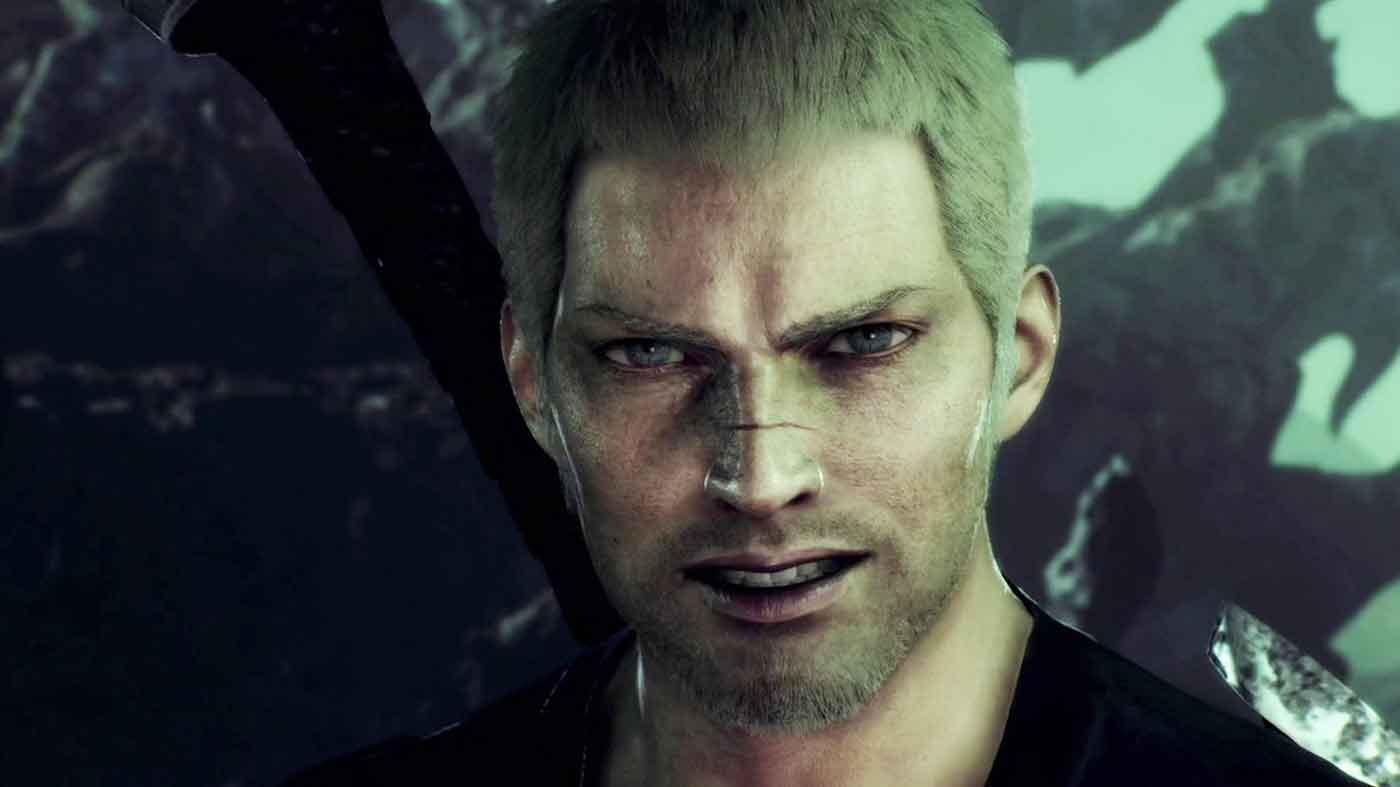I’ll waste no words here. It’s remarkable that Stranger of Paradise: Final Fantasy Origin is actually fantastic. The first trailer was so misguided as a first impression that I’d argue it’s become a meme in and of itself. The demo wouldn’t work for several days following its upload. So many people I’d speak to have even forgotten this game exists beyond that first trailer. So much was against this game, and I was ready to be too. But now, having played from beginning to end, while still a bit rough around the edges, Stranger of Paradise is a fantastic Final Fantasy spin-off and perhaps even one of the best.
Stranger of Paradise: Final Fantasy Origin is essentially a retelling of the original Final Fantasy game, though told through an alternative “what-if” kind of scenario. You play as Jack, a man thrown into the world from another reality who barely remembers anything of his past. He meets up with four other similarly forgetful people. They set off on their merry way to restore four crystals in a bid to finally defeat Chaos, the evil being and final boss of the original Final Fantasy game.
There’s no sugar coating it – Stranger of Paradise’s story is the greatest most concentrated example of “so bad it’s good” that I think I’ve ever experienced in a video game. Jack himself is comically overwritten, and most of the game events occur with little connection between them. The opening scene where the major characters meet feels like it’s missing dialogue and context. It’s entirely cringe-worthy, but to the point where it was incredibly entertaining. I can see the plot and characterisation of Jack, especially being divisive amongst players. However, despite the fact this is abhorrently bad in terms of video game storytelling, it’s still remarkably entertaining.
It’s extremely fortunate, then, that Stranger of Paradise is a fantastic action game underneath it all. Much like Nioh before it with Dark Souls, many have been quick to compare this game to Nioh. While both are action RPGs, Stranger of Paradise carves out its own niche to offer something entirely its own. However, it’s similarly structured to Nioh. Each level is selected from a world map and offers a dungeon to crawl and a killer boss at the end. Some locations have more than one mission to offer too.
This means that Stranger of Paradise is comprised mainly of what it does best – combat. It’s without a doubt one of the fastest Team Ninja games I’ve played (second only to Ninja Gaiden itself) and has all the bells and whistles you’d expect from a game of this ilk. There’s parrying, evading, and blocking, and there are regular attacks and special attacks too. The most unique aspect is Soul Shield, a special block that depletes your stamina meter but recovers your MP.
The crux of the combat is around managing your MP pool, which powers both magic and special abilities that you’ll learn as you level up. Stranger of Paradise isn’t like other games in its genre – dying won’t lose you any experience. Instead, as you finish off enemies, you’ll be able to expand your maximum MP pool. Dying in Stranger of Paradise merely resets your maximum pool to its base levels, with an opportunity to return where you died to restore it too. It’s a much gentler way to punish players than games like Nioh, Dark Souls, and even Elden Ring did.
It’s all pretty standard stuff for an action game, though Stranger of Paradise does its best to fold Final Fantasy into that mix to offer up something much cooler.
Enter the jobs system. There are over twenty-five of them in Stranger of Paradise, and any Final Fantasy fan will be familiar with how they work. The job you choose for Jack governs what weapons he can use and what abilities he has access to. Most of these are pulled from classic Final Fantasy games – think the warrior, dragoon, or black mage. Each of them has their own skill tree that improves their abilities and grants bonuses no matter which jobs you have equipped. It’s a friendly system that encourages you to change things up, and, even better, you can hot-swap between two jobs at once on the battlefield.
What I really liked about the jobs system in Stranger of Paradise is how much flexibility it gives you in combat and how much depth there is to it. I’d often spend my time with the Sage – a master of both black and white magic – but also switch out my second job with one of the games many physical options too. Dragoons are masters of spears and can use the series signature “jump” move, while the Monks can buff themselves to deliver more damage per hit, as an example. There’s a heap on offer here, and being able to mix and match from a pool of over twenty jobs means there’s bound to be something here for everyone.
Similarly, while some abilities are tied to your job selection, others are bound to whatever weapon you have too. Learning one of the weapon-based abilities in one job unlocks it for any other job as long as you have that same weapon type equipped. These abilities are great, too – they can be slotted in between your regular attacks to alter your combos and create combos that best suit your playstyle. Top this with abilities that you can absorb from certain enemies and throwback at them, and you’ve got an excellent pool of options at any point in combat to pull from.
If I’ve not made it clear – the combat in Stranger of Paradise has greater depth and scope than I could have ever hoped for, and it’s why it’s such a joy to play no matter your playstyle or skill level.
The enemies and locations are similarly pooled from classic Final Fantasy lore. It’s fun to see all these classic creatures be tweaked to better suit the faster paced gameplay in Stranger of Paradise, and the boss battles can get especially hectic. Locations are similarly, while not exactly as they appear in other games, inspired by the classic games’ locations. It’s a bit of a shame then that about two thirds of the way through the game, the enemy variety is stifled considerably – you’ll fight pallet swapped versions of enemies you’ve already seen, though with different abilities.
Most would quickly take the mental shortcut and assume that Stranger of Paradise is as hard as games like Nioh or Dark Souls. While Stranger of Paradise can get pretty tough – it not only has selectable difficulties but even a casual mode that does a lot of the heavy lifting for you. I’m all for more people playing this game the way they want – even though I switched to Hard about a third of the way through to give myself more of a challenge. That being said, I never found myself stuck on any of the games’ numerous boss battles for more than an hour at a time. If you’re not as stubborn as me, you can lower the difficulty on the fly on a per-mission basis at any of the save points in the game.
Following completion of the game, there’s a brand-new mode called Chaos Mode, which feels like a new game plus mode of sorts that’s more difficult and tuned more with end game progression. Similarly, your job trees can be “mastered” to improve their benefits. So even though Stranger of Paradise will take most players between twenty-five to thirty hours to complete, there’s more to keep coming back for. Even cooler, two other players can tackle the game’s numerous main or side missions. Those who join their friends’ game will earn more than usual EXP through a consumable called anima shards, so there’s a nice incentive there to do so too.
The game isn’t without its faults, though. While it’s fantastic to be able to see all your collected gear appear on your character, Stranger of Paradise does fall victim to the dreaded looter-shooter mentality. I picked up over fifty pieces of equipment once, all with marginal stat differences in one level. To the game’s credit, it’s effortless to select multiple and discard them or dismantle them for components that can improve other weapons. But it feels pretty unfocused and, without a doubt, is one of the game’s weakest aspects. I rarely ever selected my equipment and just used the series-standard “optimise” option instead.
The game’s biggest downside is also the most obvious – its presentation. Stranger of Paradise looks great at times, but its production values feel remarkably low for the most part. I opted to play the game in performance mode, which meant an apparent reduction in resolution to get the game running as smoothly as it was. The worlds themselves are beautiful and well realised, as do most cinematics; it’s just that the game is lacking some kind of shine or polish to make it look as good as it can be. Mind you, it’s come a long way since the demo, with clear changes in lighting in an attempt to make it brighter and colourful, but it’s still a bit of a strange-looking game. It’s good that the music is great Final Fantasy fare, consisting of entirely original pieces and joyfully remixed pieces from older games.
THE PLAYSTATION 5 VERSION WAS PLAYED FOR THE PURPOSE OF THIS REVIEW. A DIGITAL COPY OF THE GAME WAS PROVIDED BY THE PUBLISHER.


